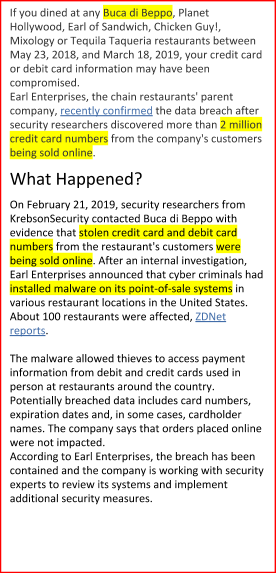It’s tough to do business today and not accept credit cards. Credit Cards offer your customers an added level of convenience, and accepting them means the potential for more sales. It also means paying credit card merchant fees, though, which could cut into your profits considerably.
Understanding Merchant Fees
Credit card merchant fees are what you pay every time you process a credit or debit card sale. The fees you pay are determined by the company with which you work to process these transactions. They typically involve three different costs – the interchange cost, the service cost, then the markup your payment processor applies to each transaction. There are many differences between payment processors, which means there are many different potential fees you could be paying. More than that, though, your processor’s costs are only one piece of the equation. They’re really the last step – the financial institution that securely pushes your transaction through to your bank account. Card issuers like Capital One and Citi are involved, as are the credit card networks with which they work – like Visa and Mastercard.
Rates vary by a number of different factors. There are typically PCI-compliance costs, annual fees on every account, and fees for chargebacks. You may also find hardware and software leases built into your account, and impact the rate for each transaction you process.
You may also hear the term “interchange” fees as you consider which payment processor is right for you. Every time a customer uses a card with your business (whether online or in person), there’s a fee paid from your merchant account to the customer’s credit card company. That’s the interchange fees, and they’re set by the network involved like Visa and Mastercard. Those fees are allowed to change twice each year: October and April. The reason behind these fees is to help the bank that issued the card cover its costs. After all, there’s some risk with credit cards like the potential for fraud. There are also some actual costs, like handling the sale, building the software, and that sort of thing.
Interchange fees vary just like the overall rates you’re paying, thanks to many different pieces of the processing equation. The type of card the customer uses is one of those. Debit cards with a PIN tend to be a much lower risk type of transaction, so the interchange rate is lower. Business cards, though, usually have a higher interchange rate. How the sale occurs also affects the rate. In person card transactions (also called card present transactions) have lower rates than those sales where the card isn’t present (as it happens with an online sale).
The total amount being sold affects rates, too, as the more business you do, the lower your rate. The type of business you own can also affect your rate. Some companies are simply a higher risk to credit card companies. Companies that deal with gambling and even hospitality companies deal with higher risk clientele, and thus they pay higher interchange fees.
Dumping the Interchange Fees?
Many companies looking to lower their overall payment processing costs look to interchange passthrough pricing to help with that. In this type of processing, the interchange fees and assessments are passed directly to your business. Sometimes called interchange plus, it means a little more transparency for some companies, though it’s not right for everyone. Instead, it’s just one more option to consider as you shop for the payment processor that might be right for you.
Lowering Your Credit Card Fees
There are four different kinds of pricing models among processors today. Interchange Plus pricing is probably the most common. You pay a percentage of the transaction, then a fixed fee. Flat rate pricing is becoming more common among small businesses. This is where you pay one single percentage on every single transaction you process. Subscription pricing is where you pay a smaller fee on each transaction, then a subscription cost to the service itself. Tiered pricing is the final type. There, the amount you pay depends on the type of card you charge. There are usually other add-on fees involved in this setting.
Your ability to accept plastic is almost essential in today’s business world. As you consider what might be right for your business, think about how you process credit cards. Card-present transactions mean far lower rates. Think, too, about the size of your overall transaction. If you’re processing more $5 transactions than you are $50, you need to factor that into the equation. Finally, think about your industry. If you work in a risky business, you’re going to want to do a little more shopping so you can pay less to help your customers.
To learn more about Y2Payments and our merchant services, contact us today at 888-693-1850.





